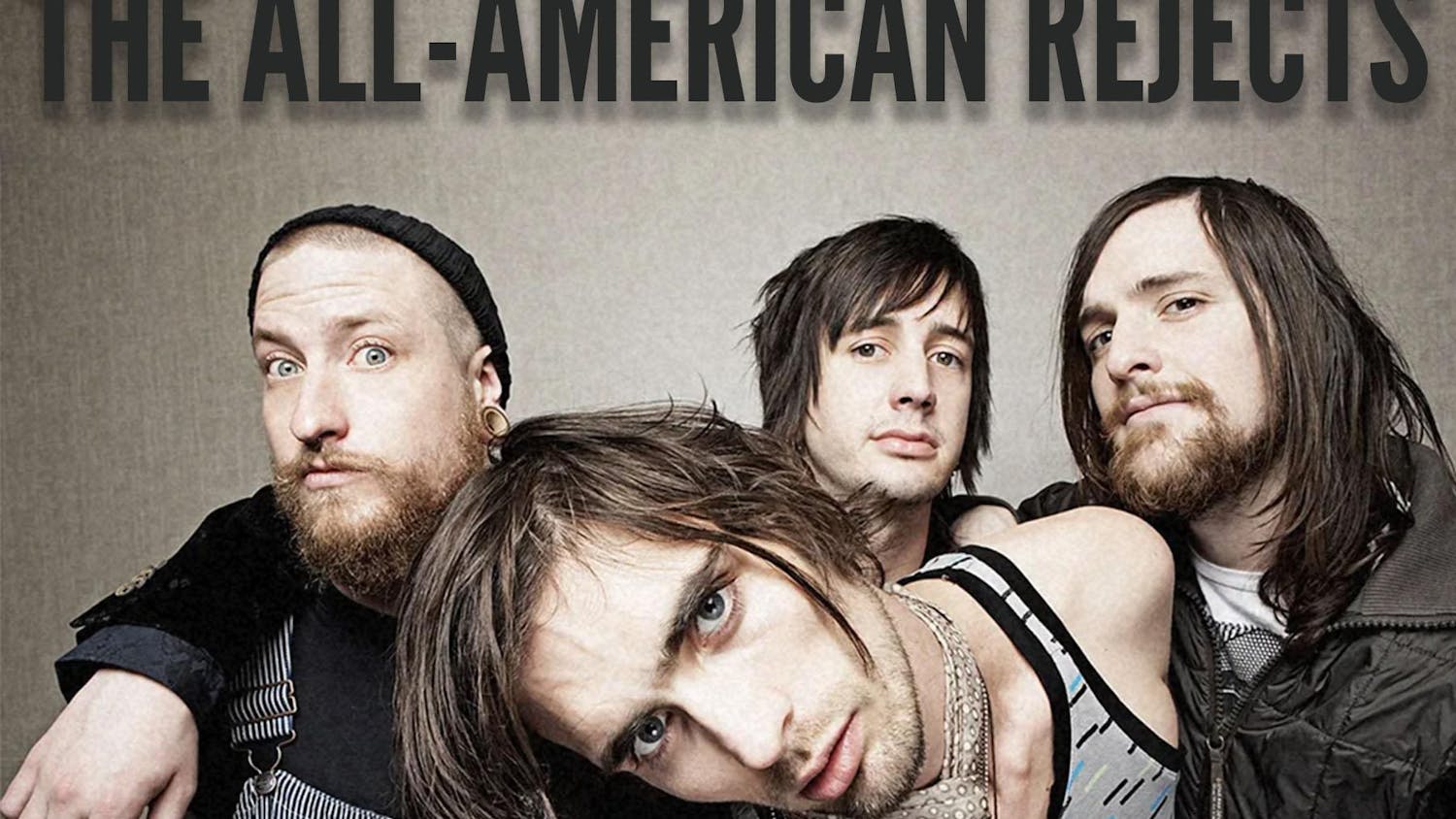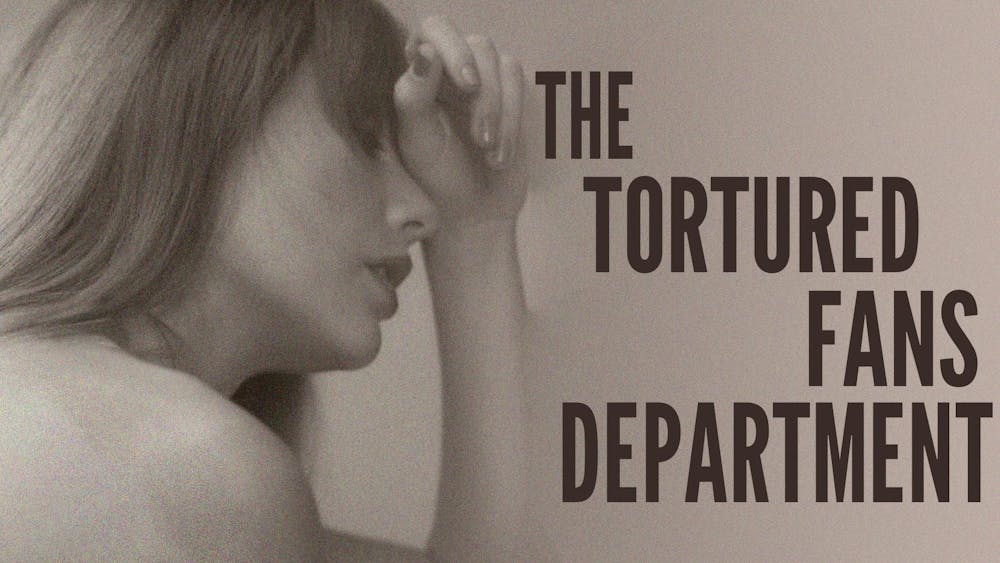
It’s really no wonder the mash-ups on the Kanye Wes Anderson Tumblr fit together so naturally. Despite the apparent diametrical stylistic opposition between the two, both musician Kanye West and filmmaker Wes Anderson create their individual works in the post-postmodern mindset of New Sincerity. Eschewing the cynicism and irony of the previous generation, the two embrace the earnestness of a bygone era — think of the supreme sincerity of Dickensian characters such as Oliver Twist and Tiny Tim.
When so many of their peers use the trendy antithetical lenses of detached irony and hollow parody to distance themselves from their material, Anderson and West actively — increasingly so throughout their careers — seek to inhabit their projects, leaving parts of themselves within, making it impossible to remove their identities from their work. As a result, you get film characters like the disheveled, sunglasses-clad Richie Tenenbaum espousing prototypical Kanye West lines like “Sunglasses and Advil / Last night was mad real,” without the image feeling like much of a stretch in either direction.
Kanye West began his music career when the concept of New Sincerity had already been present in film, literature and even music for close to 20 years, but the mode had yet to transform hip-hop’s predominately gansta rap trappings of decades prior. Yes, songs like NWA’s 1988 hit “Express Yourself” pushed for truth in rap storytelling years before West wrote a rhyme, but “Express Yourself” was couched in a tremendous dose of hypocrisy — a proverbial diss track that committed the same fallacies it attempted to call out.
Not until West’s emergence and rise in popularity had anything like his melodramatic introspection and unhip, unselfconscious conviction found its way so holistically into rap. From his earliest production efforts (the uplifting soul samples and vocals on Talib Kweli’s heartbreakingly honest “Get By”) and debut singles (the raw tear-jerking, jaw-wired-shut performance on “Through the Wire”) to his most recent artistic endeavors (the cheesy, low budget “Bound 2” video and his raggedly earnest fashion line), West has forged a sub-genre and influenced a new wave of rap artists, becoming the de facto father of rap’s New Sincerity.
Since his beginnings in exploring sentimental emotions through such black and American conventions such as religion and family, West’s inspirational breadth can be traced in conjunction with his many slight artistic shifts every two albums or so, the first of which coming in the form of his sub-genre-establishing “The College Dropout” and “Late Registration.” The reverence for childhood purity and confession on both releases struck chords with fellow Chicago natives Lupe Fiasco and Chance the Rapper.
Both Lupe and Chance embrace similar themes of spirituality and unabashedly pine for the innocence of childhood in the face of hood violence and drug addiction. On Fiasco’s latest album, he paints a rich collage of his adolescent memories over soul-indebted production with “Murals,” while arguing for peace throughout.
Likewise, Chance the Rapper’s own childishness is a key component to his artistic identity. Along with the other members of his childhood-friends-turned-musicians collective #SaveMoney, Chance takes heavily from the gospel sounds and over-earnestness of West’s first two studio albums. Like West on “The College Dropout” opener “We Don’t Care,” Chance raps for the kids, a younger generation that’s easier to shape for the future than the broken men of the present are to repair.
With his eternally pubescent singing voice, Chance has sung odes to his Ma, his newborn baby and to his grandma for taking him to church. He has extravagantly, gorgeously covered the theme song of one of his favorite childhood cartoons and turned it into an anthem for his equally young fan base, and he’s even produced his own version of West’s “Family Business.”
After two albums of unabashed celebration and honest scrutiny of his surroundings, West turned inward and carved out an entirely new breed of descendants. In the stadium-sized pop anthems of "Graduation," West showed flickers of self-reflection and braggadocio that completely manifested themselves in “808s and Heartbreak.” The biggest, most obvious offspring produced by these two records are Drake and Kid Cudi. Drake, the king of emotional rap tinged with, most recently, boasts and self-celebration; Kid Cudi, the most insular, aggro-emotional artist to emerge from the presence of Kanye.
The most popular hits of both rappers’ early career combined the pre-Kanye oppositional elements of grand pop productions and extremely intimate confessions into something still ultimately labeled “rap.” There has perhaps been no more personally exposing line in rap than Drake’s “The one that I needed was Courtney from Hooters on Peachtree” off his sub-genre-cementing “Nothing Was the Same” from 2013 — an album whose top hit was a straightforward pop ballad, and yet on which Drake nonetheless boasted, “Who else making rap albums, doing numbers like it's pop?”
But while Drake takes far more from Kanye’s ego, Kid Cudi tends to retreat further towards the id. Cudi hides nothing about his feelings; he’s often criticized for being too sincere, joked about for being too emotional, chastised for pursuing what he wants to pursue no matter the public response — including forgoing a follow-up to his successful “Man on the Moon” projects in order to make guitar-ledrock albums. His fractured, isolated aesthetic nevertheless works to capture his moodiness perhaps better than any of his writing can. He cares deeply, and he’s misunderstood: What’s more New Sincerity than that? Not to mention he recently acted as co-host and bandleader for a late-night television show whose major influence is “The Pee-wee Herman Show.”
Yet, as West’s ambitions continue to grow through his career, he has inspired not only more expansive but also more polarizing brands of musical successors. The pristine decadence of “My Beautiful Dark Twisted Fantasy” and the overblown extravagance of “Yeezus” have paved the way for acts like Young Thug, Future and especially Travi$ Scott. These artists have taken the ornateness of West’s most recent albums and turned its elements into over-the-top, post-Kanye soundscapes taking as much from “Graduation” as “Yeezus.” After all, auto-tune would not be employed in the twisting, encompassing way it is now without T-Pain's vocals on the hook of “Good Life.” Most emblematic of this style is Scott’s 2015 rap western “Rodeo.”
Like West — and Cudi — Scott’s production establishes dense moods on each song that fit together like a sprawling tapestry across the highly conceptual album. And while, also like Cudi, his lyrics often leave something to be desired in the way of depth, he often expresses himself in the same manner as West, if tougher to swallow.
There are also the rappers that have cropped up more as a result of Kanye West’s career as a whole than as a result of any one phase in particular. These artists watched as West opened up nontraditional avenues in rap, allowing them to explore themselves through a genre that was at one time not as accessible for introspection of this nature. The crushingly introverted, extremely personal “Doris” and “I Don’t Like S---, I Don’t Go Outside” by Earl Sweatshirt borrow more thematically than aurally from West. Still, the heartbreak that dominates “808s and Heartbreak” and “My Beautiful Dark Twisted Fantasy” set up Earl to be able to write two albums as emotionally affecting as he did and have an audience for it.
Similarly, Childish Gambino, whose narrative “Camp” and “Because the Internet” are indebted to West as mainstream-rap/alternative-rap bridge pioneer, drew his clearest parallels to West during a series of late-night Instagram confessional posts leading up to the release of his latest album. The stunt, captured via photos of handwritten letters on hotel stationary, revealed just how vulnerable and human even stars of Gambino and West’s stature can feel, wiping away the façade of stardom and embracing true human troubles.
In a 1993 essay on the future of entertainment titled “E Unibus Pluram,” one-time rap historian David Foster Wallace predicted a movement that read an awful lot like New Sincerity.
“The next real literary ‘rebels’ in this country might well emerge as some weird bunch of anti-rebels, born oglers who dare somehow to back away from ironic watching, who have the childish gall actually to endorse and instantiate single-entendre principles,” Wallace wrote. “The new rebels might be artists willing to risk the yawn, the rolled eyes, the cool smile, the nudged ribs, the parody of gifted ironists, the ‘Oh, how banal.’ To risk accusations of sentimentality, melodrama. Of over-credulity. Of softness. Of willingness to be suckered by a world of lurkers and starers who fear gaze and ridicule above imprisonment without law.”
If this description doesn’t bluntly recall Kanye West and the wave of rappers he has inspired since mainstreaming rap’s New Sincerity movement, you may have been too busy rolling your eyes at him to notice.













